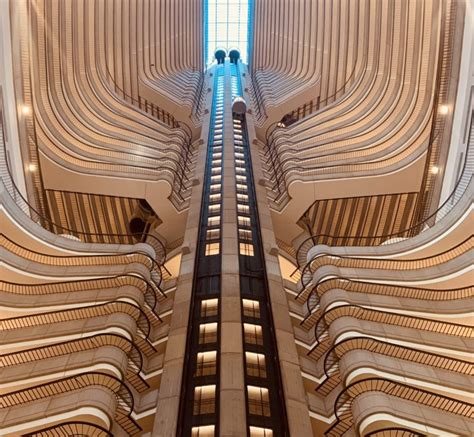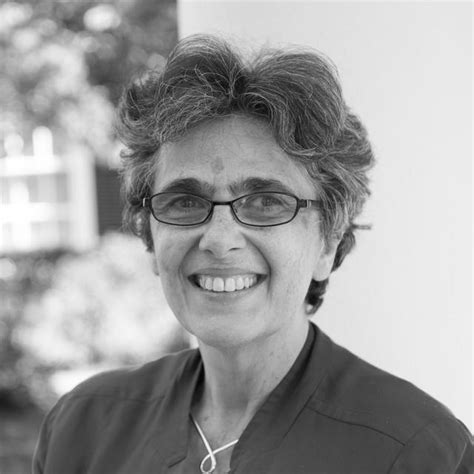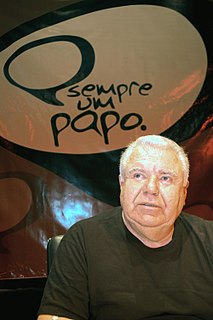A Quote by E. O. Wilson
It's obvious that the key problem facing humanity in the coming century is how to bring a better quality of life - for 8 billion or more people - without wrecking the environment entirely in the attempt.
Related Quotes
The problem facing humanity today is not a political problem; it's not a financial problem; it's not a military problem. It's obviously a spiritual problem. That is, it has to do with what we believe to be true about who we are, where we are, why we are where we are, and what are we doing on the Earth. What is the purpose of life itself? What we need right now are leaders or models, people who will stand up and not only help to write a cultural story, but help to model it in the way that they interact with each other.
I used to read more when I was a kid than I do now. It was all sort of fuel for the fire to teach you how to think and how to make things and it informed the architecture that I was doing. It's better coming in with that history and that kind of knowledge and depth of understanding of humanity that is very important for building buildings - for understanding people and how they should live and how you could make your lives better and stuff like that.
The most important thing in life is human affection.
Without it one cannot achieve genuine happiness.
And if we want a happier life, a happier family, happier neighbours
or a happier nation, the key is inner quality.
Even if the five billion human beings that inhabit the earth become
millionaires, without inner development there cannot be peace
or any lasting happiness.
Anything that we know how we do, machines will do better. Now, the key element of this phrase is, "We know how we do it." Because we do many things without knowing exactly how we do them. So this is the area where machines are vulnerable, because it still has to learn from some kind of experience. It needs something - at least the rules of the game. You have to bring in something that will help the machine to start learning. It's like square one. If there's nothing there, if you can't explain it, that's a problem.
You know how it always is, every new idea, it takes a generation or two until it becomes obvious that there's no real problem. It has not yet become obvious to me that there's no real problem. I cannot define the real problem, therefore I suspect there's no real problem, but I'm not sure there's no real problem.
We are better able to bring the same sort of pragmatic planning and analytical pre-work to our values scripts that we would bring to any other business position that we espouse. This approach enables us to be more reasonable, more respectful, less impulsive and more constructive. Risk cannot be eliminated entirely but that is true in all of life.
We have to create a sustainable environment, worldwide, and we're not doing it. The best thing we can do with the rest of this century is aggressively acquire - and put aside - the richest natural reserves that we can, and then do our best to manage the needs and desires of the 11 billion people we expect to have by the end of the century. This is where biology is headed. For that reason, the sooner we get on with mapping biodiversity on Earth, the better off biology will be - not to mention the whole subject of saving it before we carelessly throw it away.
Sustainability is an economic state where the demands placed upon the environment by people and commerce can be met without reducing the capacity of the environment to provide for future generations. It can also be expressed in the simple terms of an economic golden rule for the restorative economy: Leave the world better than you found it, take no more than you need, try not to harm life or the environment, make amends if you do.
There is no endeavor more noble than the attempt to achieve a collective dream. When a city accepts as a mandate its quality of life, when it respects the people who live in it, when it respects the environment, when it prepares for future generations, the people share the responsibility for that mandate. This shared cause is the only way to achieve that collective dream.
If we can make computers more intelligent - and I want to be careful of AI hype - and understand the world and the environment better, it can make life so much better for many of us. Just as the Industrial Revolution freed up a lot of humanity from physical drudgery I think AI has the potential to free up humanity from a lot of the mental drudgery.
My job is to not be easy on people. My job is to make them better. My job is to pull things together from different parts of the company and clear the ways and get the resources for the key projects. And to take these great people we have and to push them and make them even better, coming up with more aggressive visions of how it could be.



































